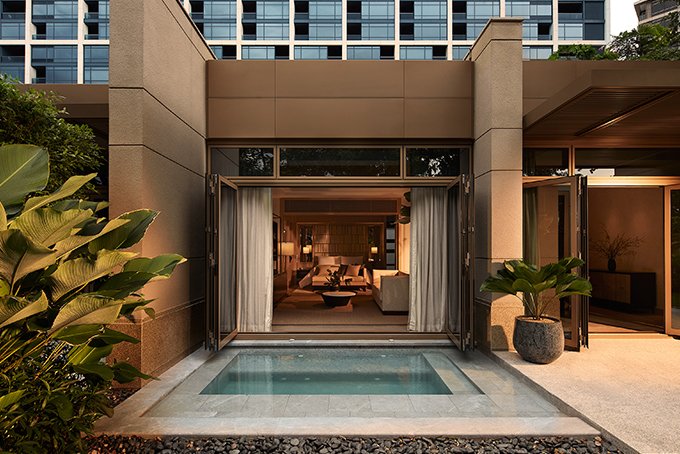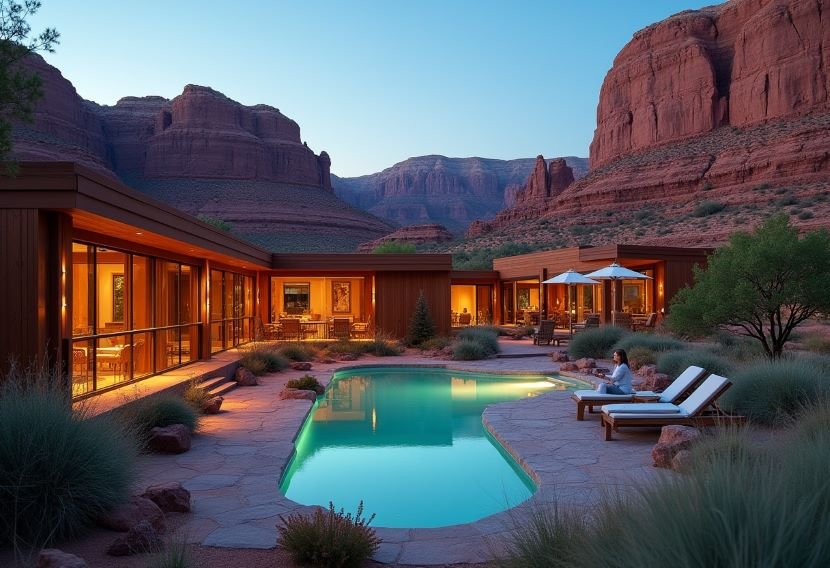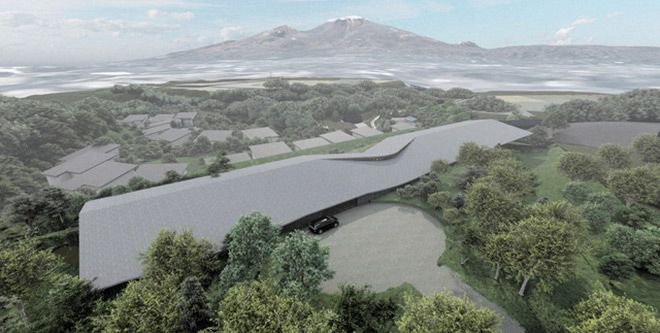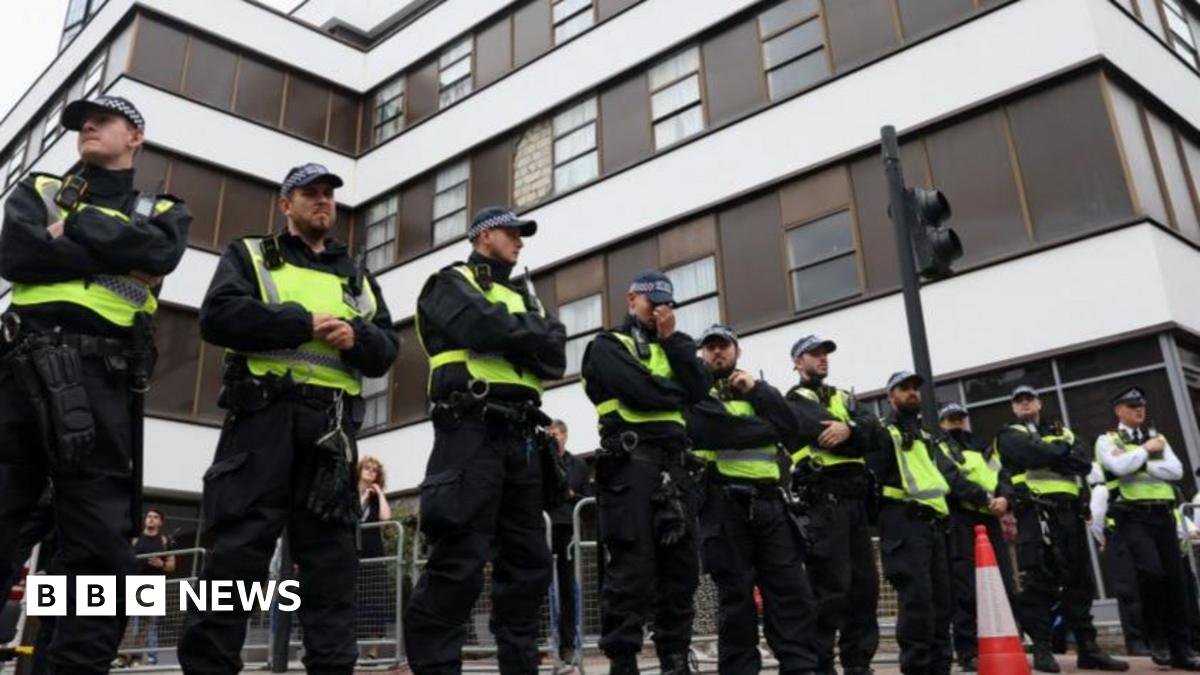Hotels & Accommodations
The best luxury hotels in Bangkok, Thailand

Bursting with vibrant culture, delicious food and a thriving retail landscape, Bangkok has long been one of the top travel capitals in Asia for good reason. What the recent few years have bestowed upon us, however, is a luxury hotel scene so fertile—it is the veritable gift that keeps on giving.
Post-pandemic, the city has seen a slew of top hospitality brands from around the globe opening palatial properties on its shores, from stalwarts like Capella Bangkok (presently the top name on The World’s 50 Best Hotels list) to boutique darlings like The Standard Bangkok Mahanakhon. Most recently, another storied brand has unveiled a highly-anticipated address: Aman Nai Lert Bangkok, an art-filled oasis bringing a dose of serenity to the city bustle.
Each hotel on this list boasts a diverse set of offerings—from astounding dining experiences to exceptional wellness programmes—but what they share in common is exceptional service, cementing Thailand’s well-deserved reputation as the land of warmth and hospitality. When you book a stay at any one of these addresses, what you can expect is a hotel experience as flawless as it gets: kindred service that makes you feel impossibly at home, thoughtful design perfectly balancing comfort and opulence, and an ideal vantage point to everything Bangkok has to offer. When in one of the greatest cities in the world, there is little more we could think to ask for.
Courtesy of Four Seasons Hotel Bangkok
1 / 6
Four Seasons Hotel Bangkok
Situated right in the heart of Bangkok’s arts district and overlooking the serene Chao Phraya river is the Four Seasons Hotel Bangkok, an urban sanctuary perfect for the creatively-inclined voyager. Artwork frames every wall, with large-scale installations featuring river-inspired settings anchoring main sections of the lobby. Beyond the spectacular collection of masterpieces on display (amassed by the hotel’s famed interior designer Jean-Michel Gathy), the hotel also maintains a symbiotic partnership with Bangkok’s Museum of Contemporary Art, curating rotating exhibitions featuring contemporary Thai artists in the hotel’s very own art wing.
Negative space is utilised beautifully within the building’s architecture, and guest rooms are suitably enormous, with windows stretching from the floors to the tall ceilings and offering unblocked river views. The most exciting dining concept here is Chinese restaurant Yu Ting Yuan. Specialising in classic Cantonese cuisine, the restaurant is a destination in and of itself, with reservations often booked out months in advance.
Courtesy of Dusit Thani
2 / 6
Dusit Thani Bangkok
The local legend makes a comeback—Dusit Thani, which opened as one of the very first luxury hotels in Bangkok back in 1970, now reveals a brand new facelift. Joining hands with André Fu Studios, the hotel sparkles with an old world charm. Colours of celadon green, sage and champagne hues ground the most part of the interiors, with gold finishings as luxurious accents. Traces of Thai history and the original hotel’s legacy can be spotted within the hotel, from the lobby arched like a pavilion to a nine-level waterfall garden flanked by 50-year-old trees. But what truly is astounding about Dusit Thani’s reopening stands to be its bigger rooms, with each nook offering expansive views of Lumpini Park, lined by cushy day-beds that are inspired by traditional Thai salas.
To unwind, head to the ultimate resting place, known as Devarana Wellness, where one can get a relaxing massage and a sound bath session conducted in a cocoon-shaped room. Of course, when in a towering building, the rooftop bar is always a good idea. At Dusit Thani, there are two: the 1970 Bar and Spire Rooftop Bar that will grant exquisite panoramas of the city’s glittering skyline.
Courtesy of Aman
3 / 6
Aman Nai Lert Bangkok
By design and placement, finding a place that could echo the all-immersive Aman standard in the busy capital of Thailand had to be quite the feat. And fortunately, the name Nai Lert would hold the right cards. Right next to the verdant Nai Lert Park, Aman Nai Lert Bangkok is a vision that brims with cultural inflections—with a vast and thoughtful art collection, each bespoke piece produced by local craftsmen.
Inside each suite, lies an expanse of space bathed in neutrals and poised like a personal sanctuary—from the gigantic bath to the luxurious walk-in closet cum lounge. Whilst at the Aman Wellness Centre, is where every fitness and wellness junkie will be thoroughly sated (think a state-of-the-art-gym, Pilates classes, cold plunge and more)—especially with the addition of a relaxing massage that heeds ancient Thai traditions at the Aman Spa. When it comes to the food, make sure to never miss a meal at the hotel. Think authentic Thai cuisine served from morning to night, as well as a decadent range of Italian and Japanese specialities at its exquisite restaurants.
Courtesy of The St. Regis Bangkok
4 / 6
The St. Regis Bangkok
Standing out amongst the Thai capital’s many luxury hotels is no easy feat, but The St. Regis Bangkok achieves this through genuine and warm hospitality, world-class amenities and an incredible slate of dining options—from all-day dining destination Viu, which serves up one of the best breakfast spreads in the city, to one-Michelin-starred Igniv Bangkok, the hotel’s brilliant fine-dining establishment.
The hotel’s stellar location is certainly a plus too. Bangkok’s biggest shopping district is a short walk away, as is the picturesque Lumpini Park. The hotel also has direct access to the BTS Skytrain network, so exploring the city is as convenient as ever. And to unwind after a long day of shopping, drop by the hotel’s spa and aesthetics clinic Longevity Hub by Clinique La Prairie—the acclaimed brand’s first flagship outside Europe. The relaxation areas here are world-class, equipped with amenities such as Thai herbal steam rooms, vitality pools and a foot reflexology water walk. A wide range of massage treatments and facial experiences await, the latter of which makes use of the brand’s premium skincare products. It’s a sanctuary of rejuvenation so blissful that you’ll find yourself struggling to leave.
Courtesy of The Standard
5 / 6
The Standard Bangkok Mahanakhon
One of the hippest hotels in Bangkok, The Standard boasts stellar design and cultural programming anchored by delectable food and drink hotspots. Castleton green and rosewood shades fill the space alongside leafy foliage from the hotel’s potted plants. Its shelves act as a gallery of sorts, with artful, whimsical objects made by Thai artisans on display. Rooms are dressed in neutral tones with pops of rust on the bed, and also feature a dusty pink bathroom and rain shower. As extensions of your fanciful home away from home, they offer every luxury amenity you will need.
Located in the Ole Scheeren-designed Mahanakhon Tower, ducking out of the hotel for a Michelin-starred meal or the city’s famed crab omelette is an easy ride away, but staying in for your meals and avoiding Bangkok’s notorious traffic is a wondrous option too.
Courtesy of Capella Bangkok
6 / 6
Capella Bangkok
There are few addresses in the city more staggering than Capella Bangkok, Thailand’s first outpost of the Singaporean hotel brand. Claiming the top spot on The World’s 50 Best Hotels list in 2024, the grand dame property is surrounded by lush gardens and the serenity of the Chao Phraya river. Rooms come spacious and dripping with opulence, while riverside villas and suites boast private pools and riverside views that will make it nearly impossible to tear yourself away to explore the city.
What makes a stay here truly memorable are the Capella Culturalists, or personal butlers, who are on hand around the clock to provide anything guests could possibly need or want: custom itineraries, restaurant recommendations or even a dramatic retelling of Thai history. Remarkably intuitive and knowledgable, these custodians of hospitality take good service to a whole new level—they might just spoil you for life.
Hotels & Accommodations
US Hotel Industry Sees Mixed Performance in Week Ending July, St. Louis Showing Growth Amid Declines

Sunday, August 3, 2025
The latest data from CoStar, a leading provider of real estate analytics, paints a challenging picture for the US hotel industry for the week ending July 26, 2025. Despite recovery signs in certain markets, the overall year-over-year performance indicates slight declines in key metrics such as occupancy, average daily rate (ADR), and revenue per available room (RevPAR). These results reflect a mix of ongoing challenges in the hospitality sector, as well as regional variations across the country.
The overall trend of negative growth in hotel performance for the week compared to the same period in 2024 highlights the ongoing uncertainty facing the industry. However, the report also sheds light on specific markets, such as St. Louis, which recorded positive movement, contrasting the general trend. This article will delve into the details of the data and explore the implications for both hotel operators and travelers.
US Hotel Industry Performance Overview
For the week ending July 26, 2025, the US hotel industry experienced slight declines in all key performance metrics compared to the same week in 2024. The following are the reported figures for occupancy, ADR, and RevPAR:
- Occupancy: 71.5% (-0.7%)
- Average Daily Rate (ADR): $164.88 (-0.1%)
- Revenue per Available Room (RevPAR): $117.88 (-0.8%)
These figures indicate that while the hotel industry continues to experience a relatively strong level of occupancy, the overall revenue generated per available room remains under pressure. The decline in ADR by 0.1% and RevPAR by 0.8% suggests that hotels are still grappling with pricing pressures, particularly as travelers remain cautious about their spending.
Despite the slight year-over-year declines, the overall occupancy rate remains relatively healthy, indicating that demand for hotel accommodations is still stable, albeit with less momentum than in previous periods. However, challenges persist, especially in markets that are struggling to recover from unique regional disruptions.
St. Louis: A Bright Spot Amid the Decline
While many US markets have seen a decline in key performance metrics, St. Louis stands out as a notable exception. The city reported the highest occupancy increase among the Top 25 Markets for the week, with a 5.7% year-over-year rise in occupancy, bringing the rate to 70.9%. This increase can be attributed to a combination of factors, including targeted marketing campaigns, local events, and the city’s growing appeal as a mid-sized destination for both business and leisure travelers.
St. Louis has been positioning itself as a vibrant hub for tourism, with increased efforts to attract more visitors through cultural and recreational offerings. The strong occupancy growth in the city suggests that these efforts are beginning to pay off, as it bucks the overall downward trend seen across much of the US hotel industry.
The performance of St. Louis highlights the importance of localized factors in the hotel industry. While national trends may show overall stagnation or slight declines, specific markets are capable of outperforming the broader trends due to strategic initiatives, favorable local conditions, and the adaptability of hotel operators.
Houston: A Struggling Market
On the opposite end of the spectrum is Houston, which recorded the steepest declines in all three major performance indicators. The city saw a significant drop in occupancy, down by 19.7% to 61.1%. The ADR also fell by 7.7%, reaching $117.02, while RevPAR saw the sharpest decline, down by 25.9% to $71.54.
These declines are primarily attributed to the elevated displacement demand that followed Hurricane Beryl in 2024. Many hotels in Houston experienced a surge in bookings due to the temporary displacement of residents and business travelers during and after the hurricane. As the region returned to normal, this temporary spike in demand was not sustained, leading to a sharp decrease in performance metrics.
Houston’s struggles serve as a reminder of how external factors, such as natural disasters and regional disruptions, can significantly impact hotel performance. As recovery efforts continue, it is essential for operators in affected regions to manage expectations and plan accordingly to regain stable occupancy levels.
Regional Variations and Market Adaptations
The US hotel industry is highly diverse, and performance trends can vary significantly from one region to another. In addition to the notable performances in St. Louis and Houston, other markets are showing mixed results. Cities with strong business travel demand, such as New York and Los Angeles, are likely to continue to perform relatively well, while more leisure-focused destinations might experience fluctuations depending on seasonal trends and consumer confidence.
The key to navigating this complex landscape will be for hotel operators to adapt their strategies based on local demand drivers. With the recovery from the COVID-19 pandemic continuing to evolve, it is crucial for hotels to remain agile, adjusting pricing, marketing, and service offerings to meet changing consumer needs.
Looking Ahead: A Challenging Road for US Hotels
The US hotel industry faces a mixed outlook as it continues to recover from the disruptions of the past few years. While key markets such as St. Louis show promising growth, other cities like Houston are grappling with the aftermath of regional challenges. The slight year-over-year declines in occupancy, ADR, and RevPAR indicate that the road to full recovery will be slow and uneven, with some regions bouncing back more quickly than others.
For hotel operators, the focus must remain on improving efficiency, maintaining high service standards, and responding swiftly to emerging trends. Additionally, keeping track of local market conditions will be vital for adapting to the demands of travelers in a post-pandemic world. As the industry continues to adjust to changing travel patterns, operators will need to stay ahead of the curve by focusing on delivering value to their guests while managing operational costs.
Conclusion
The latest data from CoStar paints a picture of a hotel industry in transition, facing both challenges and opportunities. While national trends indicate slight declines in key performance metrics, specific markets like St. Louis show that targeted strategies and regional initiatives can yield positive results. Meanwhile, cities like Houston remind us that external factors such as natural disasters can have a long-lasting impact on hotel performance.
As the US hotel industry navigates these challenges, the focus must remain on adaptability, efficiency, and customer satisfaction. The ability to respond to local demands and capitalize on emerging trends will be crucial to maintain profitability and sustaining long-term growth. With the hospitality sector continuing to recover, it is clear that the industry is in a period of flux, but the potential for success remains strong in markets that can adjust and innovate effectively.
Hotels & Accommodations
Royal Holdings in tie-up to open 21 luxury hotels in Japan by 2035

Restaurant operator Royal Holdings Co. is teaming up with Minor Hotels, the largest hotel group in Southeast Asia, to develop luxury hotel accommodation in the Japanese market.
The company plans to open 21 hotels across Japan by 2035, targeting wealthy foreign tourists from the more than 36 million people who visit each year.
Based in Thailand, Minor Hotels operates more than 560 luxury hotels and resort facilities in 57 countries.
It is also a member of the Global Hotel Alliance, the world’s largest alliance of independent hotel brands, serving 30 million members.
It will be Minor Hotels’ first foray into Japan.
Royal Holdings and Minor Hotels established a joint venture earlier this year.
On July 10, they unveiled plans to open Anantara Karuizawa Retreat, a hotel and resort facility, in Karuizawa, Nagano Prefecture, in 2030, partnering with general real estate firm List Group.
Anantara is Minor Hotels’ flagship brand.
Situated on a 42,000-square-meter plot overlooking Mount Asamayama, the facility will have 51 guest rooms, of which 23 are suites, It will also boast a spa, swimming pool and restaurants.
The companies are preparing to apply for confirmation for construction.
Accommodation fees and other details have yet to be determined.
William Heinecke, founder and chairman of Minor International, which operates Minor Hotels under its umbrella, told a news conference in Tokyo that Japan is the first choice of overseas destination for Thai people.
He expressed gratitude that the globally recognized hotel brand of Anantara had been accepted in the Japanese market.
Royal Holdings started in-flight catering services and operating a cafe at Fukuoka Airport in 1951.
The company has operated the Royal Host family restaurant chain as well as the Shakey’s pizza chain since the 1970s.
In addition, it operates restaurants at airports, expressway facilities and hospitals, and runs Tenya, a restaurant chain specializing in tempura rice bowls.
As for its hotel business, the company opened its first Roynet Hotel (present-day Richmond Hotel) in 1995. It currently manages 43 Richmond Hotels, which target business travelers.
“We want to operate hotels aimed at wealthy visitors from abroad in tourism destinations and cities around the country as a way to expand the scope of our business,” said Royal Holdings President Masataka Abe.
Hotels & Accommodations
Arrests after asylum hotel protests in England

A series of protests outside the migrant hotels have been taking place in recent weeks.
The protest in London on Saturday was held outside of the Thistle City Barbican Hotel in Islington, with a counter-protest led by the group Stand Up To Racism.
The Met said the protest was organised by local residents under the banner “Thistle Barbican needs to go – locals say no”.
But police said it had been “endorsed by groups from outside the local community which is likely to increase the number of people attending”.
The MP for Islington North, former Labour Party leader Jeremy Corbyn had urged people to join the counter-protest.
The police had imposed special restrictions ahead of the London demonstration, including setting out specific areas where each group had to remain.
In Newcastle, a protest and counter-protest took place outside The New Bridge Hotel.
Four people were arrested and remain in custody, according to Northumbria Police.
“The right to lawful protest is a key part of any democracy, which the police uphold,” a spokesperson for the force said.
“However, we will not accept people using them as a means to commit crime or disorder.”
About 1,500 people waved England and Union flags in a march organised by the Britain First group from Manchester Piccadilly rail station to outside the Central Library, where they held a rally.
About 250 people were also estimated to be at a counter-demonstration led by the Stand up to Racism organisation, with police keeping the groups apart in St Peter’s Square.
Greater Manchester Police said that a “number of demonstrations passed by peacefully” with “no incidents of note”.
But two arrests were made during a confrontation at the start of the march, the statement added.
One person was arrested for theft and the other for obstructing an arrest.
-

 Brand Stories2 weeks ago
Brand Stories2 weeks agoBloom Hotels: A Modern Vision of Hospitality Redefining Travel
-

 Brand Stories1 week ago
Brand Stories1 week agoCheQin.ai sets a new standard for hotel booking with its AI capabilities: empowering travellers to bargain, choose the best, and book with clarity.
-

 Destinations & Things To Do2 weeks ago
Destinations & Things To Do2 weeks agoUntouched Destinations: Stunning Hidden Gems You Must Visit
-

 Destinations & Things To Do1 week ago
Destinations & Things To Do1 week agoThis Hidden Beach in India Glows at Night-But Only in One Secret Season
-

 AI in Travel2 weeks ago
AI in Travel2 weeks agoAI Travel Revolution: Must-Have Guide to the Best Experience
-

 Brand Stories4 weeks ago
Brand Stories4 weeks agoVoice AI Startup ElevenLabs Plans to Add Hubs Around the World
-

 Brand Stories3 weeks ago
Brand Stories3 weeks agoHow Elon Musk’s rogue Grok chatbot became a cautionary AI tale
-

 Asia Travel Pulse4 weeks ago
Asia Travel Pulse4 weeks agoLooking For Adventure In Asia? Here Are 7 Epic Destinations You Need To Experience At Least Once – Zee News
-

 AI in Travel4 weeks ago
AI in Travel4 weeks ago‘Will AI take my job?’ A trip to a Beijing fortune-telling bar to see what lies ahead | China
-

 Brand Stories4 weeks ago
Brand Stories4 weeks agoChatGPT — the last of the great romantics













You must be logged in to post a comment Login